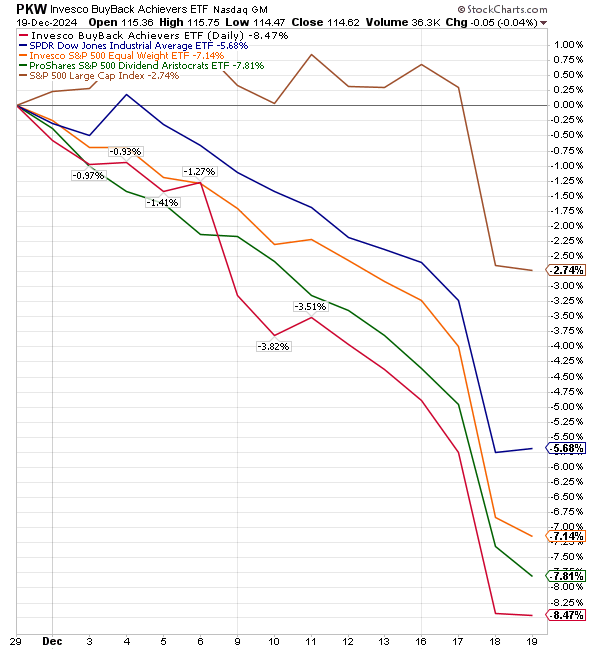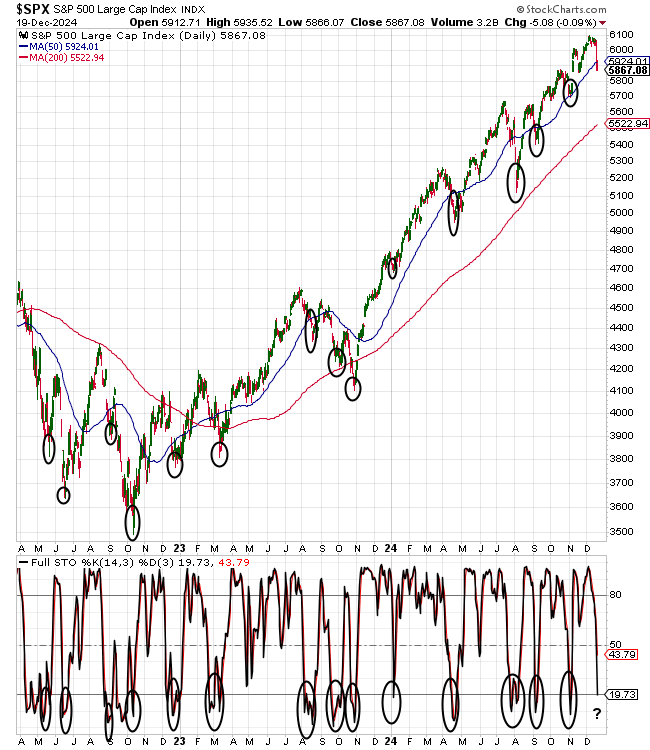Author: David I. Templeton, CFA, Principal and Portfolio Manager
At the time of this writing Thursday (12/19) evening, the House of Representatives failed to pass a temporary government funding bill. If a resolution is not reached before midnight Friday, the U.S. government's non-essential departments will be shut down. Equity market futures Thursday evening are down partially in reaction to this news; however, investors should keep in mind the equity market has mostly performed well in the prior 21 shutdowns that have occurred since 1976. A recent Kiplinger article notes,
"It's sort of counterintuitive, but during the 21 government shutdowns, the S&P 500 rose 55% of the time, generating an average return of 0.3%, according to data from Carson Group. Even better, 12 months after the end of the shutdown, the S&P 500 was higher 86% of the time, with an average return of 12.7%." Also noted in the article is the fact "the S&P 500 Index was up 10.3% during the 35-day shutdown of 2018-2019."
The last point on a government shutdown, Seeking Alpha published an article recently, A U.S. Government Shutdown Impacts The Economy, But Not The Stock Markets, that includes information on the market's performance during these events. Additionally, the article highlights detail on the impact to the economy caused by shutdowns. It is the economy that seems to be impacted more versus the stock market.
In conclusion, the market has mostly experienced downside volatility in this month of December as seen below and this began before the budget vote.

Some of the recent equity market volatility is to be expected given the strength of the equity market's advance in 2023 and year to date. The Fed's commentary after their interest rate cut announcement on Wednesday added more fuel to the fire. The announcement implied fewer rate cuts should be expected in 2025. This is important as the level of interest rates can impact how stocks are valued. Additionally, if inflation is stubborn and risking a move to the upside, higher interest rates will result in bonds becoming competition for stocks.
It would seem the market used the Fed commentary as an excuse to trim equity exposure. So long as the economy remains out of a recession, which we believe will be the case in 2025, equities can still perform well in the coming year. The 2+ year chart below shows the equity market does not move higher in a straight line. The bottom panel in the chart is the technical indicator known as the Stochastic Oscillator. If history rhymes, maybe a bit more downside volatility occurs with stocks, with the market closer to the bottom than the top though.

HORAN Wealth, LLC is an SEC registered investment advisor. The information herein has been obtained from sources believed to be reliable, but we cannot assure its accuracy or completeness. Neither the information nor any opinion expressed constitutes a solicitation for the purchase or sale of any security. Any reference to past performance is not to be implied or construed as a guarantee of future results. Market conditions can vary widely over time and there is always the potential of losing money when investing in securities. HORAN Wealth and its affiliates do not provide tax, legal or accounting advice. This material has been prepared for informational purposes only, and is not intended to provide, and should not be relied on for tax, legal or accounting advice. You should consult your own tax, legal and accounting advisors before engaging in any transaction. For further information about HORAN Wealth, LLC, please see our Client Relationship Summary at adviserinfo.sec.gov/firm/summary/333974.

